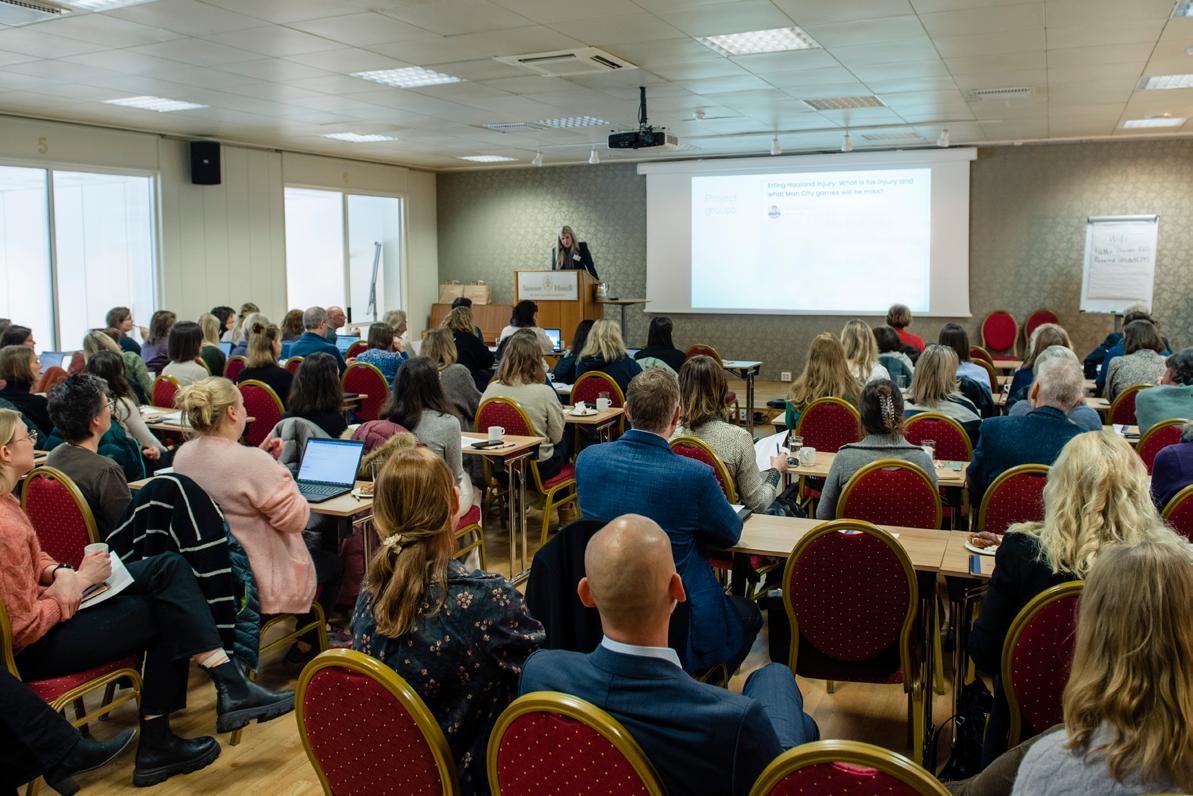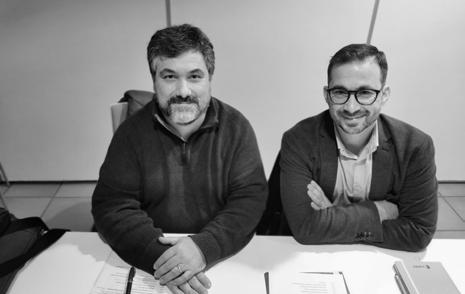
2 minute read
Work package 5 Innovative approaches to remote care
from REMEDY annual report 2022
by annettv
Viewpoint
Leader Nina Østerås, professor, physiotherapist, PhD
Advertisement
Co-leader
Anne Therese Tveter, associate professor, physiotherapist, PhD
The demographic changes require the healthcare sector to rethink current work procedures and develop strategies to work “smarter”. Remote care is nominated a strategic priority for the healthcare services to achieve a sustainable healthcare sector. Technology for remote patient monitoring have progressed rapidly through innovative applications for collection of patient-reported outcomes, which enables testing new follow-up strategies and innovative approaches to remote care. However, evidence on the efficacy and safety of remote care strategies in rheumatic and musculoskeletal diseases are limited, and more research is needed. The goal of the work package is to contribute to test and implement digital solutions that can contribute to sustainable healthcare services.
There are five studies that are primarily affiliated with the work package, and an additional three studies that are associated. In 2022, the recruitment of 260 patients was started in the NOR-Flare trial while the recruitment of 242 patients were completed in the ReMonit trial. Both trials assess the effect and cost-effectiveness of remote care in patients with rheumatic diseases. A post doc candidate has been recruited for the RemoteUX study. She will assess patients’ and health professionals’ experience with remote care in the two aforementioned trials. External funding was secured to two new trials on remote care – one for patients with gout and one for patients with osteoarthritis.
In addition to the ongoing studies, the activities in the work package have been focused on arranging seminars to learn about the experiences with remote care strategies in other hospitals. The work package leaders have joined a regional network for remote care in specialist healthcare services and has also started developing an international network on remote care. Group members in the work package are also responsible for the update of recommendations for the core treatment of hip and knee osteoarthritis.
Highlights of the year
New funding: Two new randomized clinical trials on remote care received funding grants from the South-Eastern Norway Regional Health Authority; ReMonit Gout (3,7 million NOK) and OA-AID (7,5 million NOK).
New trials: ReMonit Gout trial will test a self-management application for patients with gout starting medical treatment to lower their serum uric acid level, while the OA-AID project will test a self-management application for patients with knee osteoarthritis to increase their knowledge on osteoarthritis management prior to, and facilitate shared decision making during the consultation in specialist healthcare services.
Publication: One of the work package leaders contributed to a publication on EULAR points to consider for remote care in rheumatic and musculoskeletal diseases.
Completed study inclusion: The ReMonit trial completed recruitment of 242 participants in only 9 months.
Key publications
de Thurah, A., et al. “2022 Eular Points to Consider for Remote Care in Rheumatic and Musculoskeletal Diseases.”
Ann Rheum Dis 81.8 (2022): 1065-71.
Marques, A., et al. “Effectiveness of Remote Care Interventions: A Systematic Review Informing the 2022 Eular Points to Consider for Remote Care in Rheumatic and Musculoskeletal Diseases.”
RMD Open 8.1 (2022).
Aim
The main aim of work package 5 is to determine the feasibility, efficacy, safety, user-satisfaction, and cost- effectiveness of remote care.








